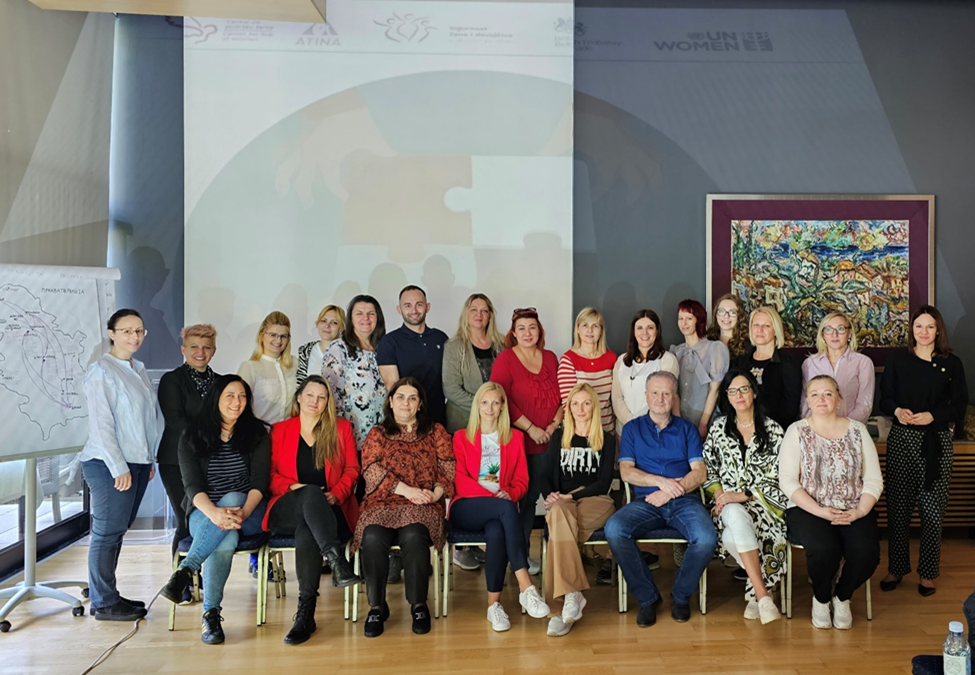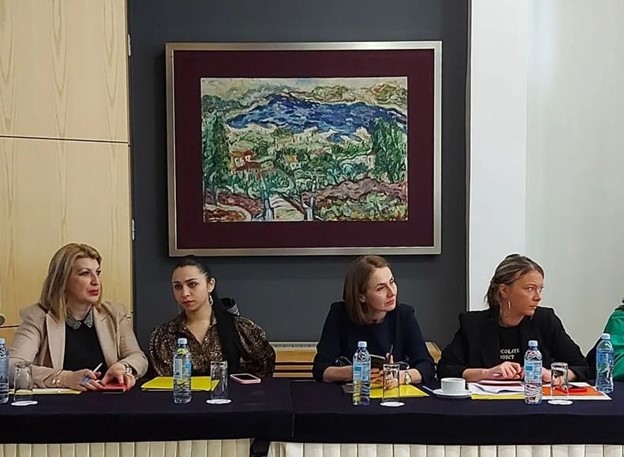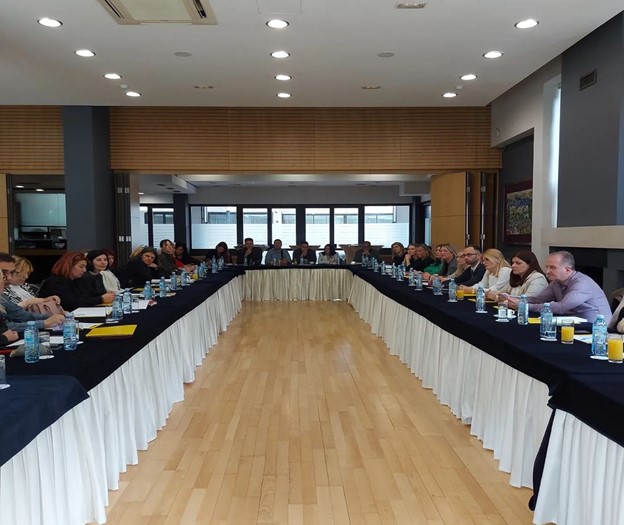Hotline: +381 61 63 84 071
It is necessary to form a coalition of all Safe houses for victims of violence in Serbia

Photo: NGO "Atina"
It is necessary to form a coalition of all Safe houses for victims of violence in Serbia
NGO “Atina” and “Center for Support of Women (CSW)” organized a meeting in Belgrade on May 19 and 20, 2023, entitled “Establishment of a Regional Cooperation Mechanism in Providing Support to women with the experience of Gender-based Violence.”
The meeting had several goals, with the main focus on establishing permanent and self-sustaining communication and cooperation of representatives of all Safe houses for victims of violence in the Republic of Serbia. Through an interactive approach and discussion, other topics such as communication and cooperation were also covered, with a particular focus on problems, challenges, solutions, resources available to the Safe houses, and the needs and opportunities for further improvement of cooperation.
The meeting was attended by representatives of Safe houses for victims of violence in Leskovac, Niš, Kragujevac, Vranje, Priboj, Pančevo, Belgrade, Sremska Mitrovica, and Zrenjanin. As essential actors in providing support, not only to the work of the Safe houses for victims of violence but also to the victims of violence themselves, the meeting was also attended by representatives of local service providers, citizens' associations, as well as representatives of city administrations. Recognizing the significance and importance of the meeting, the Ombudsman’s Office, the Commissioner for the Protection of Equality, and the Coordination Body for Gender Equality all responded to NGO Atina’s invitation.
Facilitators of the two-day regional meeting were psychologist Jelena Milić Jerković and social worker Sanja Kandić, with 33 participants attending. This meeting was conducted in cooperation with the United Nations Agency for Gender Equality and the Empowerment of Women (UN Women) within the project “Enhancement of Safety of Women and Girls by Increasing Performance of Shelters for Victims of GBV and domestic violence” and with the financial support of the British Embassy in Belgrade.
The regional meeting led to important observations and recommendations, some of the most important being the necessity to form a joint coalition of representatives of all Safe houses who will clearly and precisely state their needs, the challenges they face on a daily level, as well as increase the visibility of all Safe houses for victims of violence that operate on the territory of the Republic of Serbia. In addition, they emphasized the necessity to strengthen the capacities and skills of professional teams working in Safe houses for victims of violence. One of the key recommendations was the need to regulate precise and clear legal guidelines necessary for the efficient and comprehensive provision of services to victims of violence and closer local and national networking of all relevant actors in the protection system. It was pointed out as particularly important that support for Safe houses for victims of violence cannot be partial and periodic but requires the adoption of long-term solutions that competent institutions will support.

Photo: NGO "Atina"
Ms. Brankica Janković, the Commissioner for the Protection of Equality, addressed the attendees and provided support, underlining the importance of continuous work on establishing a joint mechanism for the operation of Safe houses throughout the region. “Networking, mutual communication, and improving the capacities of Safe houses are crucial for the support and empowerment of all women victims of violence,” she emphasized and reiterated that the institution of the Commissioner is always there to provide the necessary support, especially when it comes to such initiatives that can provide a more effective response to the issues of gender-based violence.
Although the primary goal of the meeting was to improve internal cooperation and establish a network of communication between Safe houses for victims of violence, NGO Atina’s representative, Milan Aleksić, pointed out that Safe houses for victims are not islands in themselves and that the issues and challenges faced by professional workers, who provide direct assistance and support to victims of violence within the Safe houses, are not only their issues and challenges, just as violence is not only an issue of those who are exposed to it. Aleksić mentioned that cooperation and communication must be internal (between representatives of the Safe houses for victims of violence) and external because challenges, problems, and solutions require the involvement and responsibility of other relevant actors at the local and national levels. He also emphasized that it is necessary to strengthen the advocacy potential of the Safe house representatives in Serbia further to have a unified, joint approach to the decision-makers who could help them in their further work.
Biljana Stepanov greeted everyone on behalf of the “Center for Support of Women (CSW)” and, in her opening speech, presented the activities that preceded this meeting and the importance of networking Safe houses for victims of violence to achieve a uniform approach and equally improving the quality of service provision.

Photo: NGO "Atina"
During the two-day meeting, representatives of the Safe houses for victims of violence discussed and exchanged experiences through different methodologically set activities, both among themselves and with other actors. They pointed out that the issues faced by Safe houses for victims of violence are numerous, but that mutual internal communication is undoubtedly one of the most important things and that its improvement would enable them to address the joint challenges and issues all Safe houses face in their work, regardless of the level and development of both the Safe house itself and the local self-government more adequately.

This text was developed under the project “Safety of women and girls in Serbia,” implemented by UN Women Serbia in cooperation with the Coordination Body for Gender Equality and the Ministry of Labour, Employment, Veteran and Social Affairs, with the support of the British Embassy in Belgrade. The views in this text are those of the authors and do not necessarily represent the views of UN Women and the British Embassy in Belgrade.












 FACEBOOK
FACEBOOK TWITTER
TWITTER YOUTUBE
YOUTUBE